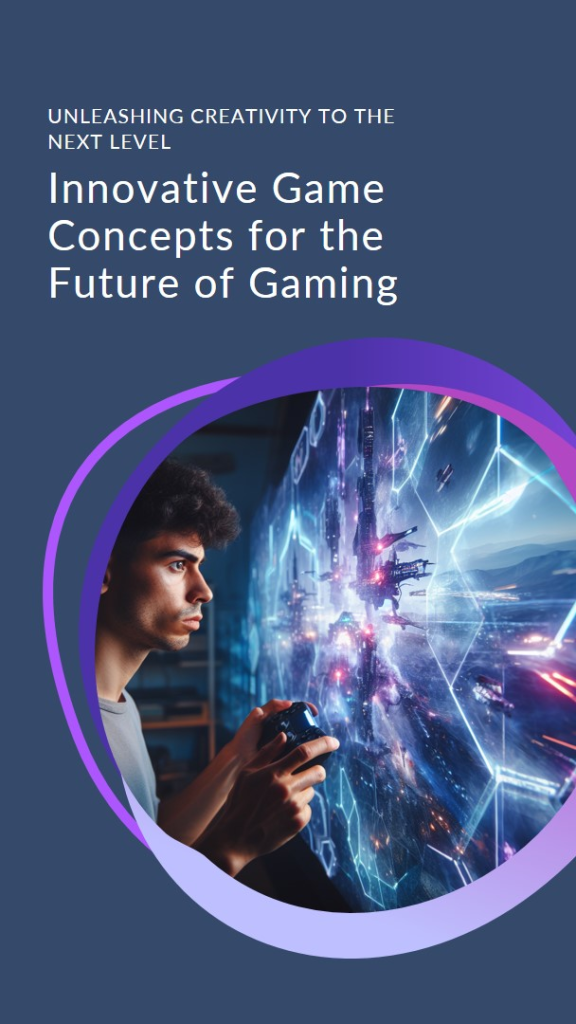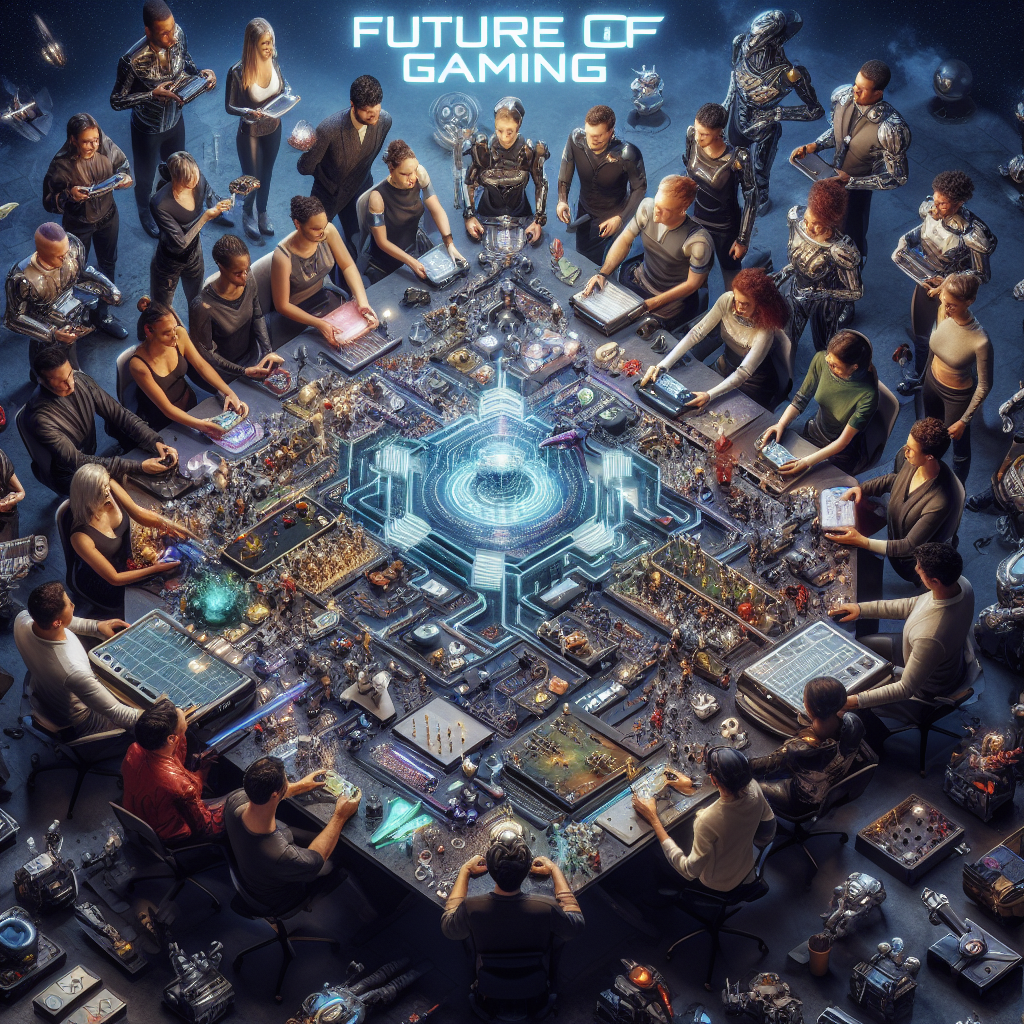The world of video gaming is a testament to unbridled imagination, a domain where creativity knows no bounds. As the industry advances, it is poised to explore realms teeming with unprecedented and innovative concepts. This exploration delves into some of the most exciting and avant-garde ideas shaping the future of video games.

Fusion of Worlds: The Rise of Hyper-Reality Gaming
The Dawn of Hyper-Reality: Merging VR, AR, and the Physical World
Envision a gaming universe where Virtual Reality (VR) and Augmented Reality (AR) converge with the player’s physical environment, creating a ‘Hyper-Reality’ experience. In the imagined game “Shadow Realm Chronicles,” players don VR headsets to enter fantastical dimensions, while their real-world surroundings morph into interactive elements of the game, crafting an all-encompassing gaming reality.
Real-World Exploration and Adventure
Extending this concept, “City Mystics” is a game where players venture through their urban landscapes to discover hidden magical entities and untold stories, effectively turning their city into a living, breathing game board.
The New Frontier of AI in Storytelling
The Evolution of Interactive Storytelling
Imagine “Odyssey of the Ancients,” a game where AI doesn’t just script narratives but weaves stories dynamically based on players’ actions, emotional responses, and even their in-game conversations. Each gaming session unfolds a distinct narrative tapestry.
Tailored Gaming Sagas
In “Chronicles of Destiny,” players experience life stories shaped uniquely for them, evolving from childhood to old age. These AI-crafted sagas blend scripted plot points with randomized events influenced by player decisions, mirroring the unpredictability of life.
Breaking New Ground with Neural Interface Gaming

Gaming on the Frontier of Thought
In the conceptual game “NeuroQuest,” players use advanced neural interfaces to interact with the game world through thought alone. This technology brings a new dimension to gameplay, offering a level of immersion previously unattainable.
Quantum Computing: Unleashing New Gaming Realities
Expanding the Boundaries of Game Design
With quantum computing, games like “Infinite Paradox” could generate complex, ever-changing worlds and characters, far surpassing the capabilities of current technology. Quantum Challenges and Puzzles
“Quantum Labyrinth” offers players puzzles based on real quantum mechanics principles, marrying deep intellectual challenges with the thrill of gaming.
The Advent of Ultra-Realistic Simulation Games
Crafting Virtual Societies and Ecosystems
In “Gaia’s Tapestry,” players are tasked with nurturing entire ecosystems or civilizations, witnessing firsthand the effects of their governance, environmental policies, and societal choices.
Learning Through Interactive History and Culture
“Epoch’s Journey” serves as an educational tool where players can experience and interact with historical events and cultures, offering a rich, immersive learning experience.
Conclusion: Embracing the Boundless Possibilities of Future Gaming
The future of gaming is a canvas for our wildest dreams and aspirations. From hyper-realistic environments to emotionally responsive narratives, the gaming world is on the cusp of a revolution, limited only by the extent of our creativity and innovation.
FAQs About Futuristic Game Concepts
- What defines Hyper-Reality in gaming?
- Hyper-Reality in gaming refers to an immersive experience that combines VR, AR, and physical world elements, creating a comprehensive and interactive gaming environment.
- How will AI transform game storytelling?
- AI will revolutionize game storytelling by dynamically generating narratives that react to player interactions, creating personalized and evolving stories.
- What is the role of neural interfaces in future gaming?
- Neural interfaces in future gaming will allow players to control and interact with the game environment using their thoughts, offering a new level of immersion and interaction.
- How can quantum computing change video gaming?
- Quantum computing can introduce complex, ever-evolving game environments and AI behaviors, and bring quantum physics-based puzzles and challenges into gaming.
What potential do ultra-realistic simulation games hold?